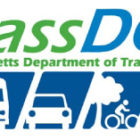The following information was provided by MassDOT:
The Massachusetts Department of Transportation (MassDOT) is advising Labor Day travelers to make informed decisions, utilize all the available technology tools including www.mass511.com, and consider public transportation if possible to reach destinations. MassDOT is taking several steps to ensure reliable travel for members of the public who utilize transportation systems across the Commonwealth and will be shutting down construction outside of fixed work zones for the Labor Day travel period effective at 5 a.m., Friday, August 30. Scheduled road work will then resume at the start of normal business hours on Tuesday, September 3. “We know there typically are higher volumes on some state highways during Labor Day weekend, and we advise everyone to make smart decisions before getting behind the wheel and heading to their holiday travel destinations,” said Highway Administrator Jonathan Gulliver. “Everyone should utilize the appropriate technology tools and wayfinding resources, consider the best route and time to travel, remain sober or use a designated driver, and exercise safe driving behavior at all times.”
The High Occupancy Vehicle (HOV) lane on I-93 between Boston and Quincy will have normal morning hours this week and open early for the afternoon commute at 2 p.m., on Thursday, August 29, and 1 p.m., on Friday, August 30. The HOV lane will be closed on Monday, September 2, and will then re-open for regularly scheduled hours on Tuesday, September 3.




